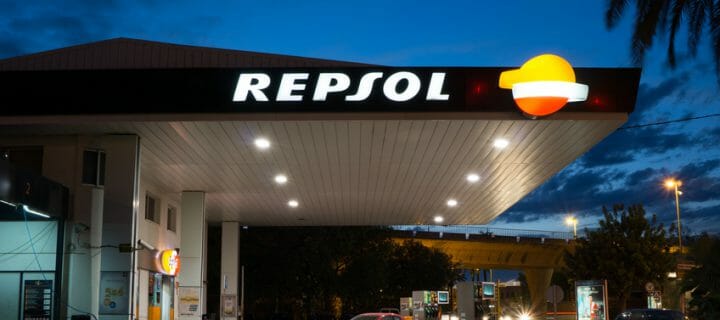Energy company Repsol will Use Distributed Accounting Technology to Reduce Costs
Thanks to the Entrepreneurs Fund of the Repsol Foundation, the alliance between the oil company and the Finboot company materialized
The Spanish multinational company Repsol announced on January 13, through an official report, its plans to use a Distributed Accounting Technology network to reduce operating costs in merchandise certification.
It was mentioned that through the Repsol Technology Lab Research Center, the multinational signed an agreement with the Finboot digital solutions company, in order to develop an application which uses the necessary technology to improve its processes.
Very soon the oil and hydrocarbons multinational will use the BlockLab application and also Marco, a private blockchain that was developed by Finboot. According to the company, the application “uses digital equivalents of the samples to be approved, thereby avoiding inefficiencies and costs associated with double work”.
The application is in its final stages of programming. The Research Center of Repsol Technology Lab’s experimentation manager, Tomas Malango, spoke about the use they plan to give the application once implemented: “Now this type of procedures, in which we handle a large number of samples, are subject to many incidences of ‘rework’ due to mislabeling, loss or incorrect connection of information. Digitization allows us to identify the unequivocal sample throughout its life cycle”.
According to company data, approximately 60,000 merchandise validation orders are handled, this is the most delicate area and in which more employees work for the optimal control of the processes, so the implementation of the blockchain App could speed up, improve processes and reduce costs. Among the great benefits is expected that the company Repsol save about 400,000 euros a year, according to what Malango said.
Repsol has a series of quality controls and certifications in refining products for petroleum, as well as in the petrochemical area. With a series of data and information that can be optimized with the App’s operation.
In the last semester of 2018, some tests and a demonstration were conduct among all the parties involved in the project. “We are in the phase of involving all stakeholders, who have valued the speed, security and accurate reporting of information provided by the tool”.
It was commented that the BlockLab application network could be interesting for other types of customers “such as the Barajas airport, for example, if you want to know at all times the quality of our aviation kerosene”, concluded Malango in September of last year.
The results of the tests that had been brewing since last year are still unknown, but it is believed that these data will be released soon. In addition, Malango explained that by April of this year the new system will be implemented throughout the research center.
The oil company puts its efforts in the digitalization of its processes to involve this technology, even more, in all its phases. Blockchain technology is occupying an important part, from the adaptation of processes that could not have been optimized, to helping in the new businesses.
By María Rodríguez
